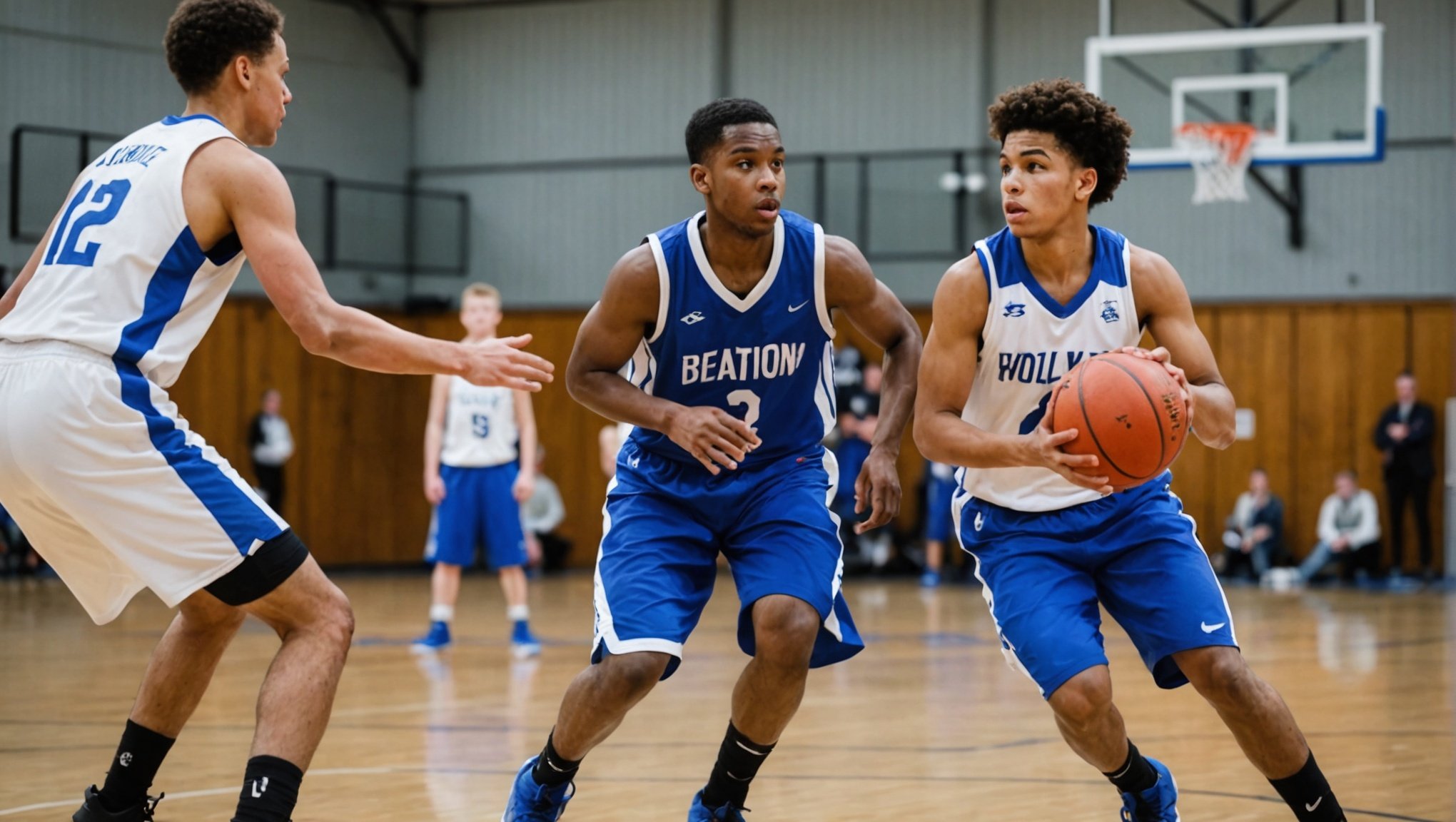Multi-sport participation is a transformative experience for UK youth basketball players. Engaging in various sports enhances skills, fosters teamwork, and promotes physical literacy. This diverse athletic engagement not only builds strength and agility but also nurtures a competitive spirit and resilience. Athletes learn to adapt, strategically think, and collaborate, all of which are vital in basketball. Explore how embracing multiple sports revolutionizes their development and unlocks their true potential on and off the court.
Benefits of Multi-Sport Participation
Engaging in multiple sports offers numerous benefits for young athletes, enhancing both their physical and mental development. Participating in diverse sports activities can lead to well-rounded physical fitness. This includes improved cardiovascular health, increased strength, and better coordination. These physical benefits contribute significantly to overall youth development, allowing young athletes to excel in their chosen sports.
Also to discover : Top Defensive Drills Every UK Basketball Team Should Master for Peak Performance
Multi-sport participation also fosters enhanced skill development. By exposing young athletes to a variety of sports, they gain a broader range of skills and techniques. This diverse experience encourages adaptability and problem-solving abilities, which are crucial for athletic performance. For instance, a young basketball player might develop better hand-eye coordination and agility by also playing tennis or soccer.
Several case studies highlight the positive impact of multi-sport participation on athletic performance. For example, young athletes who engage in multiple sports often exhibit improved performance in basketball. This is attributed to the diverse skill set and physical conditioning acquired through participating in various sports. These athletes tend to have a competitive edge, showcasing greater versatility and resilience on the court.
Also read : Unlocking Sponsorship Potential: Strategies for UK Basketball Tournaments to Captivate More Sponsors
In summary, multi-sport participation is a valuable approach for youth development, offering a range of physical benefits and enhanced skill development that contribute to superior athletic performance.
Skill Development Across Sports
Engaging in multiple sports is a powerful way to enhance skill development through cross-training. This approach allows young athletes to acquire a wide array of athletic skills that are transferable across different sports disciplines.
Transferable skills gained from different sports
Participating in various sports cultivates a set of transferable skills beneficial for any athlete. For instance, playing soccer can improve footwork and spatial awareness, while swimming enhances endurance and breathing control. These skills are not confined to one sport but can be applied to others, enriching the athletic experience and performance.
How varied movement patterns enhance basketball performance
Incorporating varied movement patterns from different sports can significantly boost basketball performance. Sports like tennis or gymnastics require quick lateral movements and flexibility, which can translate into improved agility and balance on the basketball court. These movements help athletes navigate the court with ease, dodge opponents, and execute precise plays.
Importance of agility, coordination, and strength training
Agility, coordination, and strength are fundamental components of athletic success. Cross-training in sports like track and field or martial arts can enhance these attributes. Agility drills improve quickness, coordination exercises refine hand-eye skills, and strength training builds the muscular foundation necessary for explosive movements. These elements collectively contribute to a more robust athletic profile.
Injury Prevention Strategies
Injury prevention is a crucial aspect of youth sports safety, ensuring athletes maintain their physical health while engaging in activities. Multi-sport participation plays a significant role in reducing overuse injuries. By diversifying the sports young athletes engage in, they avoid repetitive stress on the same muscle groups, which is common in sport specialization. This variety allows for recovery time and reduces the risk of injuries that can result from overuse.
Diverse Training for Muscle Strengthening
Diverse training is essential for strengthening different muscle groups. Engaging in multiple sports encourages the development of a balanced musculature, as each sport targets unique areas of the body. For example, swimming enhances upper body strength, while soccer focuses on leg muscles. This comprehensive approach to training not only improves overall physical health but also fortifies the body against potential injuries.
Expert Opinions on Sport Specialization
Experts often debate sport specialization versus multi-sport involvement. Many advocate for multi-sport participation, citing its benefits in preventing injuries and promoting long-term athletic development. Specializing in a single sport at a young age can lead to burnout and increased injury risk. In contrast, multi-sport athletes tend to enjoy prolonged careers and robust physical health due to the varied demands and skills acquired through diverse sports experiences.
Social and Psychological Benefits
Engaging in multiple sports provides young athletes with significant social skills and psychological benefits. One of the key advantages is the development of teamwork and leadership skills. Participating in diverse sports environments allows athletes to collaborate with different team members, fostering communication and cooperation. This experience is invaluable, as it teaches young athletes how to work effectively in a team setting, leading to improved social interactions and relationships.
Building a Positive Sports Culture and Community
Multi-sport participation contributes to the development of a positive sports culture and community. Athletes who engage in various sports are exposed to diverse team dynamics and cultures, which broadens their understanding and appreciation of different perspectives. This exposure helps in nurturing an inclusive environment where respect and camaraderie are paramount. Such experiences encourage athletes to build supportive networks, enhancing their sense of belonging and community.
Psychological Resilience Fostered Through Diverse Experiences
Participating in multiple sports also enhances mental health by building psychological resilience. Diverse sporting experiences expose athletes to different challenges and setbacks, teaching them how to adapt and persevere. This resilience is crucial for their mental well-being, as it equips them with the skills to handle pressure and bounce back from failures. Consequently, young athletes develop a stronger mindset, which benefits them both on and off the field.
Encouraging Multi-Sport Participation
Encouraging multi-sport participation among young athletes is pivotal for their holistic development. By fostering an environment that values diverse sports involvement, both parents and coaches can significantly enhance athlete development.
Tips for Parents to Promote Diverse Sports Involvement
Parents play a crucial role in motivating their children to explore various sports. They should encourage experimentation by introducing their children to different activities, ensuring a balance between structured sports and free play. It's essential to focus on the joy of participation rather than performance outcomes, fostering a lifelong love for sports.
Coaches' Role in Facilitating Multi-Sport Engagement
Coaches are instrumental in promoting multi-sport encouragement. They should advocate for cross-training and emphasize the benefits of diverse skill sets. By collaborating with other coaches, they can create schedules that accommodate multiple sports, preventing over-specialization and burnout.
Creating a Supportive Environment for Young Athletes
A supportive environment is key to successful multi-sport participation. Schools and community programs should offer a variety of sports options, allowing young athletes to explore their interests. Encouraging a culture of inclusivity and respect among peers can further enhance their experience, making sports a positive and enriching part of their lives.













